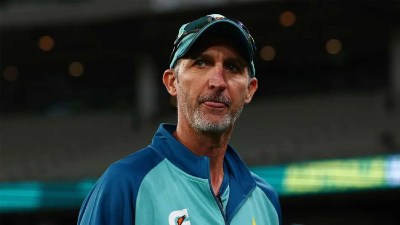Write efforts
The last few years have seen change within the monolith structure of Bollywood. At such a time, the role of the screenwriter is pivotal to carry it forward but where hundreds of talents wash up on the shores of a harsh...

The second Indian Screenwriters Conference hopes to start a new chapter for Indian film writing
The last few years have seen change within the monolith structure of Bollywood. At such a time, the role of the screenwriter is pivotal to carry it forward but where hundreds of talents wash up on the shores of a harsh, cut-throat
industry, the screenwriter is a species that needs to be protected. With the second Indian Screenwriters Conference set to begin today at the Indira Gandhi Development Research Institute near Film City, the event will be a sea of writers, directors, technicians and students from the film fraternity.
Spread over 10 sessions in two days, the conference addresses issues such as screenwriters8217; rights, standards for remuneration, fees and royalty. Aatish Kapadia, Vinod Rangnath, Rajesh Dubey, Rajkumar Hirani, Abbas Tyrewala, Abhijat Joshi, Subhash Ghai, Anurag Kashyap, Kamlesh Pandey, Rakeysh Mehra, Anurag Basu and Sriram Raghavan will be amongst the others speaking at the conference.
It also pays tribute to recently deceased playwright Vijay Tendulkar8217;s works. Govind Nihalani, who adapted Tendulkar8217;s screenplay for his 1980 film Akrosh, will talk on Tendulkar8217;s work. The tribute forms an apt backdrop for a session this year dedicated to the 8216;politics of the script8217; with Prakash Jha. 8220;There is an attempt now to come out and talk about issues, though still with some reservations. Films like Mumbai Meri Jaan and A Wednesday are trying. It also depends on the changes in the socio-political scenario over the coming months. But this is certainly an exciting time for young writers, with the sheer range of films out there,8221; explains Jha. Even though some may consider the politics of these films questionable, Nihalani is optimistic. 8220;These efforts need to be lauded and critiqued. And they should be given time to mature,8221; he says.
The first conference held in August 2006 was a move towards creating a common platform where screenwriters could meet and discuss their craft, its limitations and logistics. 8220;There is rank exploitation in the film industry. Now there are a few names backed by big banners that have the safety of adequate, timely remuneration. But the huge majority doesn8217;t,8221; says Anjum Rajabali, teacher of scriptwriting at the Film and Television Institute, Pune, and the brain behind the conference.
Screenwriter Thani is skeptical. 8220;One still can8217;t go up to the people with the money and talk percentages. So I would hope that something more concrete comes out of this year8217;s session,8221; he says.
- 01
- 02
- 03
- 04
- 05































